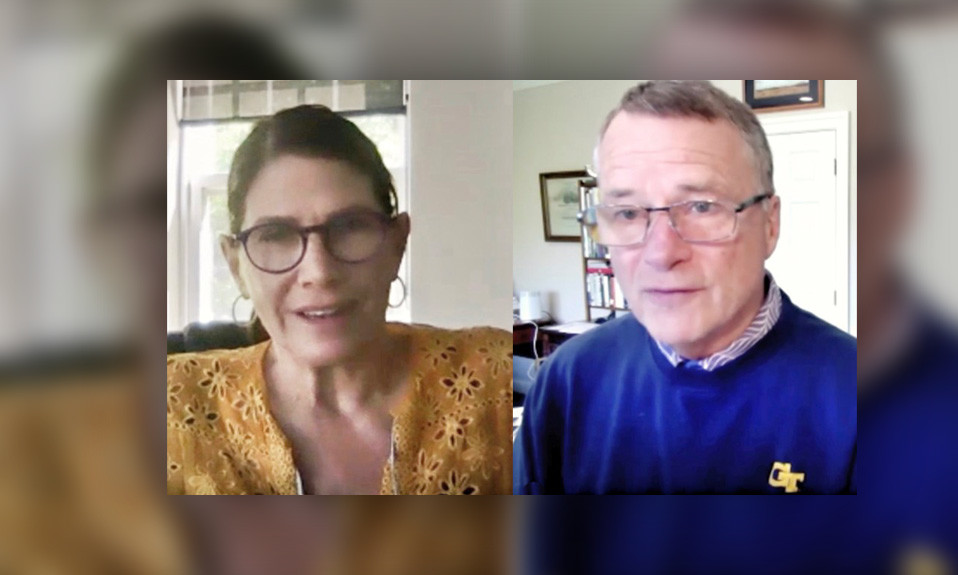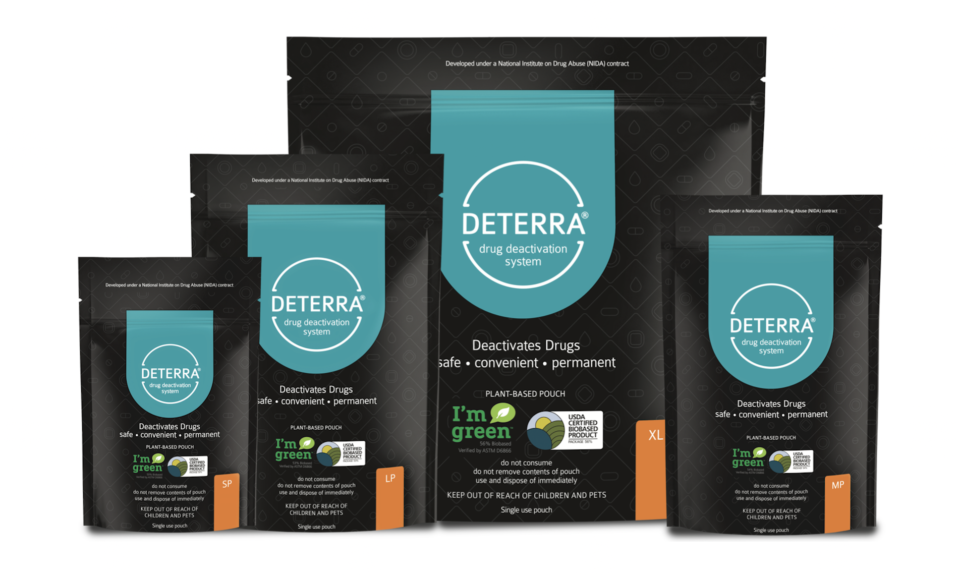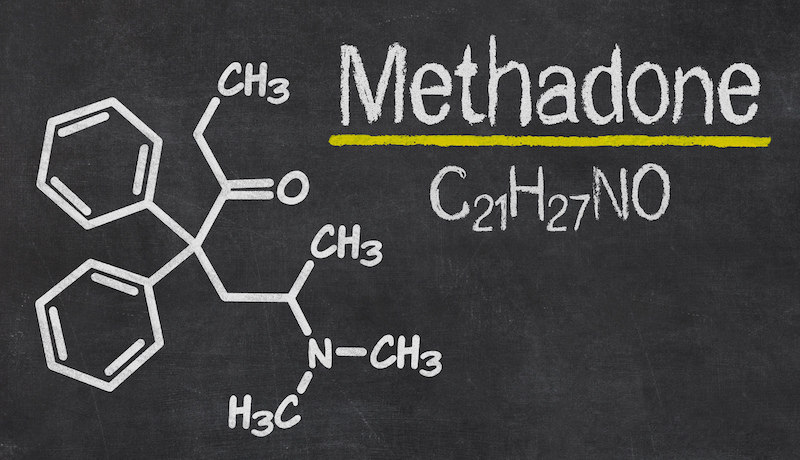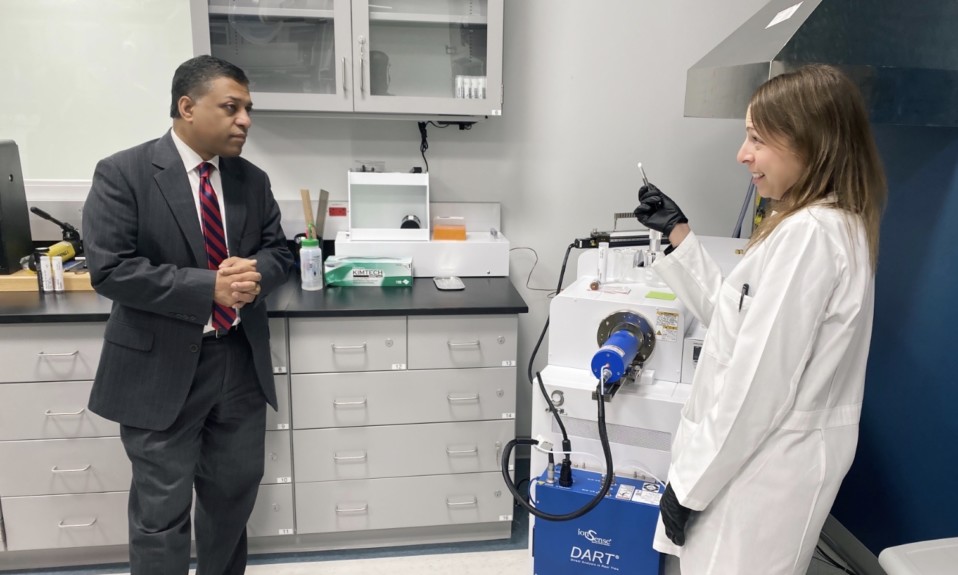The two heavy hitters talk to TreatmentMagazine.com about their work to make the disposal of unused prescription painkillers a top-of-mind issue
By William Wagner
Former U.S. Rep. Mary Bono (R-Calif.) and retired Adm. James Winnefeld make a formidable duo in the crusade against opioid misuse. They’ve been fighting the good fight together for years at a high level, most recently as the point persons on an initiative called Gone for Good.
The program, which runs each April, is designed to help people safely dispose of the billions of leftover prescription opioid medications that are gathering dust—or worse, being used unnecessarily—in homes, healthcare facilities, businesses and government agencies. Winnefeld’s anti-addiction nonprofit SAFE Project teams with the Deterra Drug Deactivation System to make the much-needed magic happen.
The patented Deterra System is a simple way to deactivate prescription drugs, pills, patches, liquids, creams and films. You fill a Deterra pouch halfway with warm water, seal and gently shake the bag, and then pitch it in the trash. Voila! Jason Sundby, chairman and CEO of Verde Technology Inc., the maker of the Deterra System, says 25,000 pouches were distributed in 2020. Hopes are high for similar success this year.
For both Winnefeld, 65, and Bono, 59, the work is extremely personal. In 2017, Winnefeld lost his 19-year-old son, Jonathan, to opioid addiction. The tragedy spurred him to do everything within his power to combat the opioid epidemic, notably by founding SAFE Project that year.
Bono’s life was touched most acutely by drugs when her teenage son, Chesare, became addicted to prescription opioids in the 2000s. Since leaving Congress in 2013, she has become involved in a number of addiction-related causes, including running Mothers Against Prescription Drug Abuse (MAPDA) and sitting on the boards of SAFE Project and Community Anti-Drug Coalitions of America (CADCA).
People were being prescribed twice as many pain pills as they needed. That’s a staggering number of pain pills that are floating around out there. A lot of people just don’t even think about it.”—Adm. James Winnefeld
TreatmentMagazine.com spoke with Bono and Winnefeld via Zoom about prescription opioid disposal and their personal ties to addiction.
Q: You two bring a lot of gravitas to the Gone for Good campaign. How did you team up?
Rep. Bono: We met in the summer of 2001. I was a member of Congress, and he was skipper of the USS Enterprise. I was touring the aircraft carrier and had my kids with me. Fast forward to when his son Jonathan overdosed and passed away. I reached out to him, but I completely didn’t make the connection that I had been on the USS Enterprise. He said, “Mary, we’ve met. Thank you for reaching out.” It was so raw and real [for him] at the time. We met within a couple days [after that], and I explained to him the work I had been doing probably since about 2007 in this space. It’s a clear example of how unfortunate it is that people don’t know about this epidemic until it hits them square in the face. Since that moment, we offered to do what we could in any capacity to address the epidemic.
Q: How do you use your high profiles to help to push the cause forward?
Adm. Winnefeld: I’d start by saying the most important thing about using the high-profile name in this space is that it helps to defeat public enemy No. 1, which is stigma. If someone with a reasonably high profile is willing to step up and say, “This happened to us, and you need to listen to me on how we can have it not happen to you, and you shouldn’t be concerned with stigma because this is not a disease of moral failing,” I think that’s the most important thing you can do. Everything else follows from that. But the most important to me is demonstrating a personal example of not being stigmatized.
Rep. Bono: Decades ago, people were embarrassed to say, “This is something that has touched my family,” because of stigma. In southern California, there was an epidemic, but it was over there. It was in Appalachia—it wasn’t in my community or neighborhood. And then you find out the hard way. You use your visibility and experiences to organize people and programs. But every day we do this work, we run into the stigma problem in one way or another. It’s still our biggest hurdle.
Q: Tell me about the Gone for Good campaign.
Adm. Winnefeld: Well, we [at SAFE Project] have had a longstanding relationship with Deterra, thanks to Mary introducing us to them. The thing that kicked off [Gone for Good] was the realization, particularly under COVID, that people would be unwilling to travel to drop their prescriptions off and that we could offer an alternative to that. We started publicizing this and offering, with Deterra’s help, free takeback bags [during Gone for Good month in April]. Just come on the website and ask for one, and we’ll send it to you during this particular month. It worked really well. As of April 22 [of this year], we had sent out 8,100 bags. Just that 8,100 alone is enough to get rid of 720,000 prescription medicines. How can you say you’re not saving lives when you’re doing that? It’s terribly important.
Rep. Bono: Two weeks ago, a good friend of mine had a knee replacement. He knows the work I do and how I feel about drug abuse and all that. He was refraining from taking his pain meds, and he called me and was really proud of that. I was like, “No. You need them. Take them for two or three days and then dispose of them.”
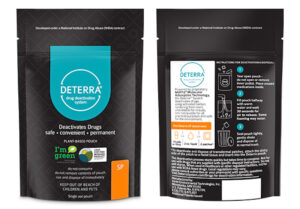
Q: So you feel you can make a real impact with your opioid-disposal efforts?
Adm. Winnefeld: One of the things we discovered early on in visiting a hospital in Park City, Utah, was its remarkable program for encouraging people to use and dispose of opioids responsibly. They did a statistical study among their doctors, and they found, generally, that people were being prescribed twice as many pain pills as they needed. That’s a staggering number of pain pills that are floating around out there. A lot of people just don’t even think about it. They say, “Hey, I’ll save these for a rainy day,” or they just stick them in their medicine cabinet and don’t realize that someone who’s come to work on their house or one of their teenage sons or daughters could easily misuse those drugs. This is an attempt to get these things swept up and keep them out of the wrong hands.
Q: So you’re in this opioid-disposal initiative for the long haul?
Adm. Winnefeld: We’re going to do this as long as we possibly can. As long as Deterra is willing to support us, and as long as we are in operation [at SAFE Project], we’d like to continue to push this program.
Rep. Bono: Hopefully the campaign will raise awareness that people need to rethink this [issue]. Take them [the painkillers], but the minute you’re done, dispose of them effectively and in an environmentally sensitive way. We’ve never had that conversation in our country.
It’s a labor of love for me. When I left Congress, I didn’t know I could stay active in the [addiction and treatment] space the way I have been able to. There are so many people you meet who you feel like you can help. I could never quit or give up on it.”—Rep. Mary Bono
Adm. Winnefeld: There are so many different levers that we need to pull as a nation in order to get our arms around this epidemic. This is just one element, but it’s a very important element. A substantial number of people who become dependent on opioids start with a prescription medicine. And a substantial number of those start with a prescription medicine that was given to them by a family member.
Q: What keeps you going on this crusade?
Rep. Bono: It’s a labor of love for me. When I left Congress, I didn’t know I could stay active in the space the way I have been able to. There are so many people you meet who you feel like you can help. I could never quit or give up on it. In the policy [part of the] space, I think we’re getting a lot right, but we’re also getting a lot wrong. With the latest CDC [overdose] numbers, we certainly aren’t close to beating this. People come up with all sorts of ideas—like throwing spaghetti at the wall and seeing what will stick—and they aren’t always the most thoughtful and careful answers. But we’re doing a lot better than we were.
Q: Through your lived experiences with the opioid epidemic, what advice might you have for others who are going through something similar?

Rep. Bono: I would advise people that this is a disease unlike any other. There are books about what to do if your child has any other disease; without the stigma, it’s so much easier. With this disease, it’s really important to reach out to people who are experts and to get some peer support. People shouldn’t try to go it alone. They need to recognize that their intuition with this issue isn’t always right. I highly encourage people to reach out to find recovery support and guidance through the toughest times, and the easiest times.
Adm. Winnefeld: It’s the worst possible thing to lose a child. Your first thought is, Why not me? I’d go before I’d let my child go. We decided that given the experiences we had, and given our ability to get things done just because we were fortunate enough to be in jobs that require that, we could either crawl into a little ball of anger, grief and shame, or we could try to step up and do something. We intentionally didn’t name our nonprofit after our son. We’re not looking for personal accolades in any way, shape or form. We’re just trying to save lives. That’s what our [SAFE Project] organization wakes up in the morning to do.
We want to see the best in our kids, but they’re suffering sometimes and trying to go through something they don’t understand. Hope is not a strategy. There are a lot of people out there who don’t know what they need to know, and those of us who have been through this can help in many different ways.
Bottom photo: Freestocks


